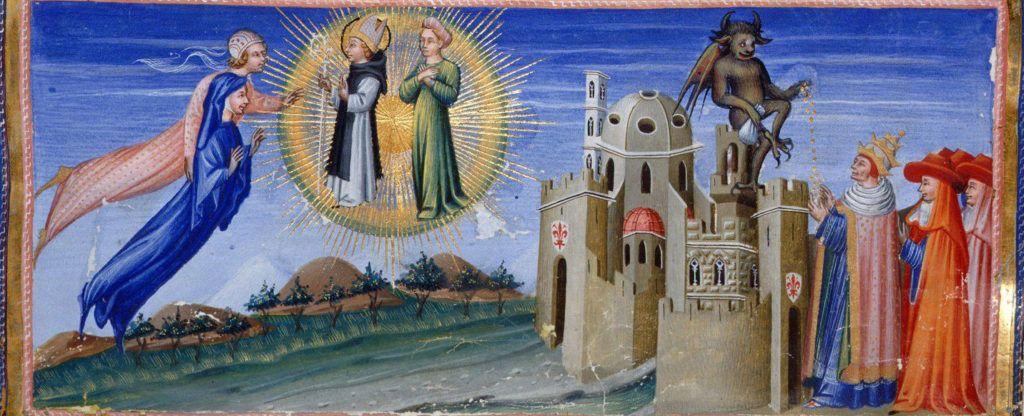2020 Spring Newman Symposium Recap: Newman on Doctrinal Corruption. Presented by Dr. Matthew Levering

Our annual Spring Symposium was a little different this year due to the Covid-19 pandemic. The day before the event, due to travel restrictions for our speakers, we had to quickly move the Symposium to an online format. Despite the last-minute scramble to make the appropriate shifts to the new format, the Symposium was a success, and the NINS staff will be sharing the videos of the lectures with you over the next few months.
The first lecture we will share is one by Dr. Matthew Levering, the James N. and Mary D. Perry Jr. Chair of Theology at Mundelein Seminary at the University of Saint Mary of the Lake. His lecture is entitled, "Newman on Doctrinal Corruption." In this lecture, Dr. Levering shows that Newman's work on doctrinal development arose from his Anglican concerns about doctrinal corruption, which at that time he identified in the Church of Rome. Why, however, did doctrinal corruption worry Newman so much? He realized that if one were to grant that doctrinal corruption has occurred in all churches—as Latitudinarians believed—then in fact the doctrinal teachings of the Church in any epoch are simply whatever powerful people, whether ecclesiastical rulers or State rulers, think fit to impose upon the less powerful masses. Far from being excitingly bold or indicating more freedom of thought, doctrinal corruption as a principle held by theologians simply justifies the power of the strong over the weak.
In distinction from those who celebrate rupture and "interruption" over against "continuity" in development, Levering shows that Newman's emphasis on "continuity" flows from his recognition that if there is solemn doctrinal rupture (reversal of solemnly taught doctrine), then in fact there is no such thing as doctrinal development. There is only human power and (individual and collective) private judgment.
Thus, theologians who care about doctrinal development will benefit from following Newman's path by being concerned to recognize and avoid doctrinal corruption. In this way, theologians locate themselves, with Newman, on the side of self-surrendering love rather than human power. Indeed, ultimately the mark by which true doctrine is known—and thus true development is known—is self-surrendering love. This doesn't mean that Councils and Popes will always act with self-surrendering love, but it does mean that we can trust the Church to communicate divine revelation through authoritative doctrinal and moral teaching that expresses the richness of this divine love. Following von Balthasar, Levering concludes:
"Von Balthasar defines liberal Christianity or modernism succinctly: 'The central presupposition of modernism … is that every objective dogmatic proposition must be measured in terms of its suitability to the religious subject.'1 In fact, the truth of Catholic faith consists in its consistent revelation of self-surrendering love infinitely beyond what we can imagine. He states that 'the fundamental word of this Logos' is 'love—and, indeed, absolute (un-conditional) and therefore utterly free love, because it is a word that reveals God.'2 Catholic faith testifies to this inbreaking love which fulfills, rather than merely rupturing or interrupting, all things. This divine love made flesh is 'Wholly-Other and Ever-Greater.'3 The objective divine truth of Catholic faith appears precisely in the fact that Catholic faith is a truth that requires, for its very manifestation, self-surrendering love rather than power. When humans turn Catholic truth into a matter of power, they distort it. Only the divine truth that is self-surrendering love can be authoritative without posing a threat to human dignity, given our willingness to use truth-claims to bludgeon others."
The full lecture video is available below.
1 Hans Urs von Balthasar, Love Alone Is Credible, trans. D. C. Schindler (San Francisco: Ignatius Press, 2004), 40.
2 Ibid., 55.
3 Ibid., 58.
Elizabeth Huddleston
Associate Editor, Newman Studies Journal
Elizabeth Huddleston is Head of Research and Publications at the National Institute for Newman Studies and is a Teaching Fellow in the Department of Catholic Studies at Duquesne University.
QUICK LINKS

